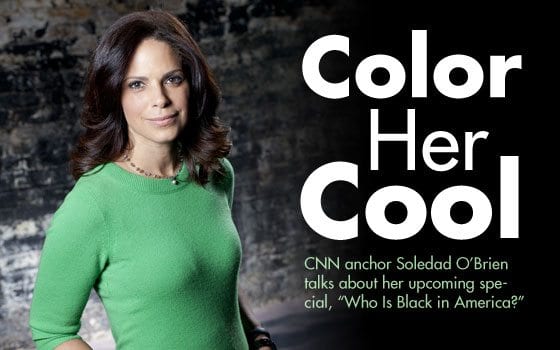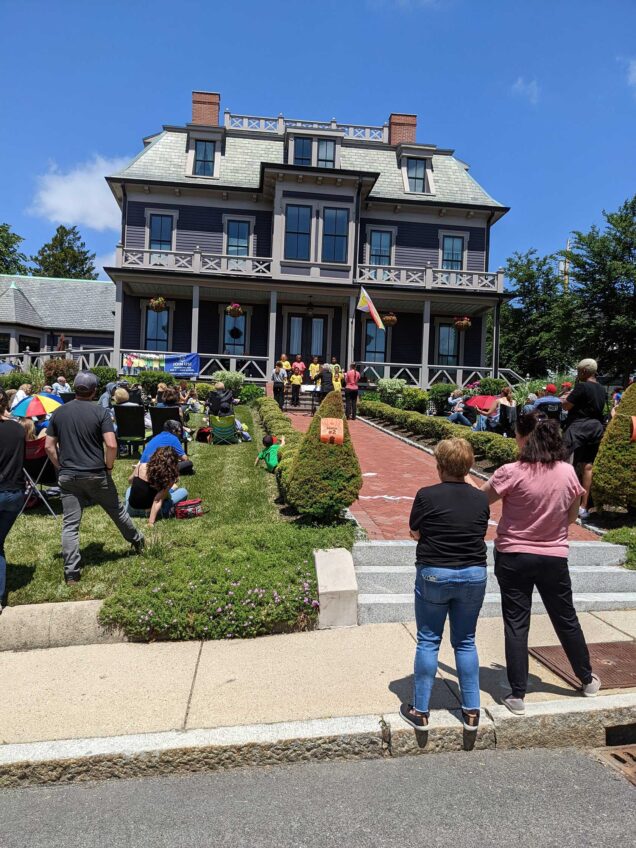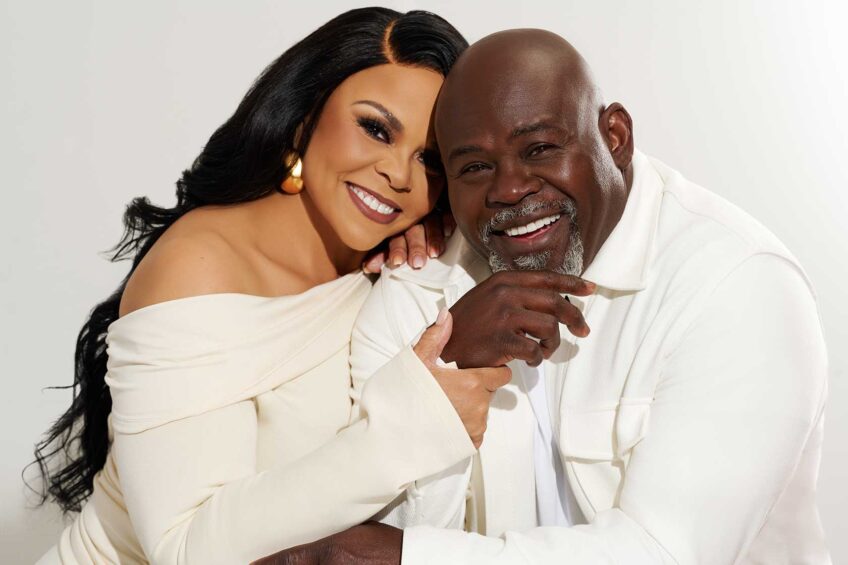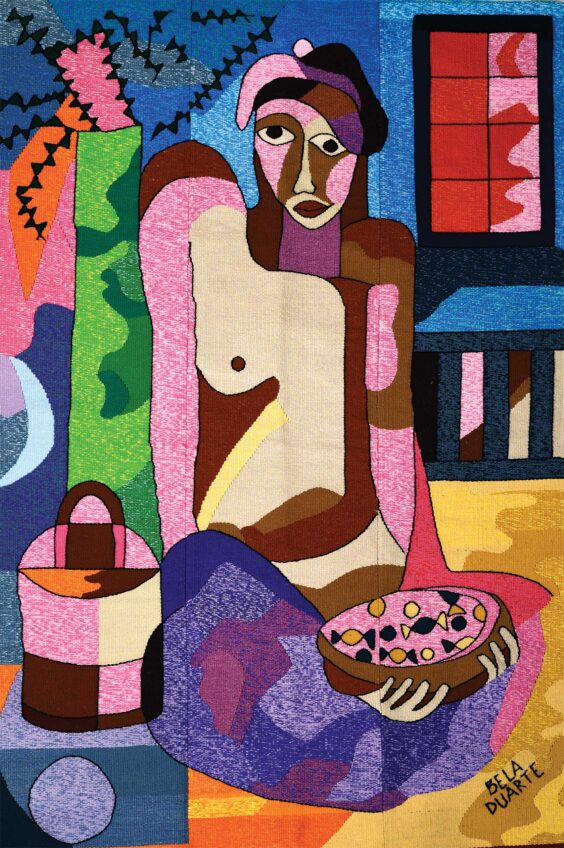
Soledad O’Brien is the anchor for the CNN morning show “Starting Point” and a special correspondent for CNN/U.S.
Since joining the network in 2003, O’Brien has reported breaking news from around the globe and has produced award-winning documentaries on the most important stories facing the world today.
In 2010, she wrote a critically acclaimed memoir “The Next Big Story: My Journey through the Land of Possibilities,” which chronicles her biggest reporting moments and how her upbringing and background have influenced these experiences.
O’Brien’s documentaries include the “Black in America” and “Latino in America” series; “Don’t Fail Me: Education in America”; “The Women Who Would be Queen,” a portrayal of the royal marriage; “Unwelcome: The Muslims Next Door”; “Pictures Don’t Lie,” the story of the secret life of Civil Rights photographer Ernest Withers as a paid FBI informant; “Rescued,” a look at Haiti’s children before, during and after the devastating earthquake; and “Gary and Tony Have a Baby” chronicling the struggle of two gay men to have a child.
A graduate of Harvard University, O’Brien lives with her husband and four children in Manhattan.
Her upcoming Black in America special “Who Is Black in America?” is scheduled to premiere on CNN on Sunday, Dec. 9.
Did you ever worry about being pigeonholed as partisan during the presidential campaign? How do you maintain your image as impartial when you have Republicans taking potshots at you? For instance, Romney advisor John Sununu suggested that you put an Obama bumper sticker on your forehead, and Fox News President Roger Ailes condescendingly referred to you as “That girl that’s named after a prison.”
It’s going to get crazy at times during any election year. That’s just what happens. The goal for me is to be focused and really well-read so I’m prepared to ask the tough questions of both sides. You’re always going to have those people who love you and those who hate you, but after four kids and a quarter-century in this business, I have a very thick skin. [Chuckles]
The only thing that bothers me is if I feel I haven’t done a tough interview. The people who come on regularly know they’re going to be challenged, and that they can challenge me. They also understand that I’m not a pushover and that I don’t crumble because I come armed with the facts.
Let’s talk about your upcoming special. Where did you come up with the idea for “Who Is Black in America?”
We were thinking about universal themes for Black in America that really touch people, that really matter to people, and one of the themes that we kept coming up with was colorism, discrimination based on skin tone.
It was fascinating to hear the conversations that were happening between people who were light-skinned, people who were dark-skinned and people somewhere in between. Just the hurt, the pain and anger on all sides was very interesting. So, we thought we would explore that because it seemed like a very interesting story to tell, especially since we were seeing a big change, generationally.
The conversations I was having with men and women of my age group were very different from the conversations younger men and women were having with people of their age group. It’s fascinating to hear the take of those around 17, 18 and 19, as they kind of grapple with their identity and with where America is today.
CNN’s Roland Martin mentions in promo for your show that he had someone in his family pass for white.
Yep, and that’s not an unusual story. That’s another question people would like to explore. What makes you black? How can you consider yourself black while someone with the identical genetic makeup considers themselves white or tries to pass for white? Those are the sort of big questions we wanted to grapple with.
I suspect that the influx of immigrants from South America, India, Africa, Mexico and so many other countries, along with mixed marriage, is changing the definition of what is black?
I think that’s true. I also think that there’s a real interesting conversation going on generationally. One of the young women we profile, who is biracial, very much has a hard time identifying as black. And yet, she has a sister who would say the exact opposite. [Chuckles]
So, this isn’t a documentary where we come up with the right answer at the end. It really is much more a conversation about colorism because, ultimately, what is at the heart of all this is the sense that there’s some better skin color to be, and that people are discriminated against. So, it’s not just that people are grappling with identity but that there’s a lot of pain and shame and embarrassment and hurt and anger on account of colorism. And we wanted to understand what that was.
Tell me a little about Nayo Jones, one of the young women you profile on the special.
She’s biracial. Her father is white and mother’s black. She lives with her dad and very much identifies with her white side. She’s a super-talented, smart young singer and poet. She goes through life with people trying to figure out what she is, and asking, “What are you?” which really makes her mad.
What about Perry DiVirgilio?
In a way, he’s the center of all the stories. He’s a biracial guy. His dad is white, his mom is black and he runs the poetry workshop in Philadelphia on understanding. When you’re a slam poet, part of the agenda is to connect to your material. And your success is a measure of your honesty and your authenticity. I think a lot of those slam poets don’t want to tackle the hard stuff, and Perry really challenges them about what their identity means to them by asking, “What is making you angry?” “What are you afraid of?” and “What are you ashamed of?”
So, he’s sort of the centerpiece of our documentary, not just for his own story but because he connects to all the young people as the poet/mentor who tries to get them to be honest. What you realize is that most people aren’t that honest, and this is one of the rare times when you capture people on camera speaking about how they feel about race and identity.
How do you see this coming-of-age generation as different?
I think those in our documentary share a sense of optimism, and I’m curious to see where it goes. Overall, it was very interesting to see all these different people trying to tackle the problem of colorism, because in some ways it’s such a deep psychological problem. Perry, our poet, thinks so.
He believes that young people being able to articulate their poetry so unbelievably is really about understanding who they are. The exercises that he does in his poetry workshop are just fascinating.
Do you think you might have different generational reactions to the special?
I’m sure. Some of the younger people exhibit a certain flexibility. They’re like, “Why can’t I be biracial? Why can’t I be both?” I never felt that was an option for us. Maybe it was, but I never felt like I had an option for both. My identity was very strong. I never believed people who said things like, “You’re not really black,” or suggested my identity might be anything but black.
Today, I think there is this sense of flexibility among younger people. Whether or [not] that remains as they get older remains to be seen. The ultimate question we examine is, “Who decides?” Is it you? Is it society?






